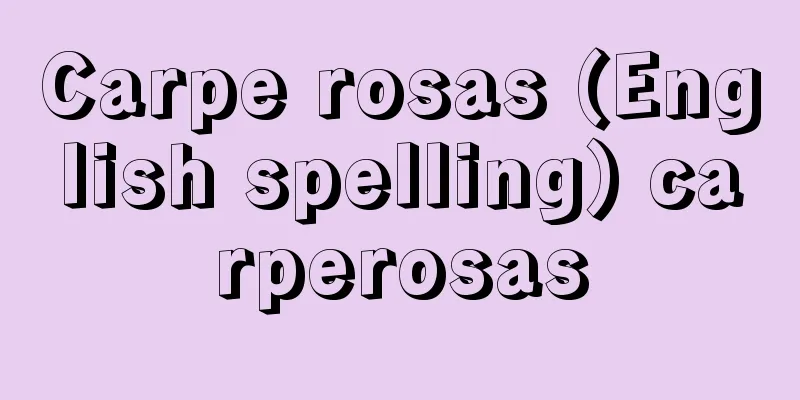Attempted - Misui

|
It refers to a case where the act of committing a crime is started but the purpose is not achieved. In contrast, a case where the purpose is achieved is called a completed crime. Attempts are not a problem under civil law, but in criminal law, the big question is whether an attempt should be punished and in what circumstances it can be punished. If one places emphasis on the subjective view of the perpetrator, it would be natural to punish someone who has committed an act with the intention of committing a crime, but on the other hand, if one places emphasis on the result, it would be that the perpetrator should not be punished because the criminal result was not achieved. In this regard, Article 43 of the current criminal law stipulates that a person who has started to commit a crime but has not completed it may receive a reduced sentence, but if the perpetrator stops the crime of his/her own volition, the sentence may be reduced or waived. The same law also stipulates that cases in which an attempt is punished shall be determined in each article (Article 44). Thus, in the current criminal law, attempts are not punishable in principle, and the sentence for an attempted crime may also be reduced. Today, the basis for punishing an attempted crime is the causing of a danger to legal interests, especially a concrete danger, with criminal intent. By the way, there is a conflict between the objective theory and the subjective theory regarding the meaning of "the commencement of execution" in Article 43 of the Penal Code. According to the objective theory, which is the prevailing theory and precedent, it is interpreted as starting an act that corresponds to the elements of a crime or performing an act that creates a concrete danger to a legal interest. In relation to this point, the timing of the commencement of execution becomes an issue, and precedents have interpreted the crime of burglary (Article 235 of the Penal Code) as beginning when the perpetrator begins to look for money and valuables after breaking into the house , and in the case of pickpocketing, the commencement of execution occurs when the perpetrator touches the victim's pocket. In addition, although an attempt requires that the purpose of the crime is not achieved, if the result of the crime is produced but there is no causal relationship between the act of the perpetrator, it is still considered an attempt. However, if the perpetrator "stops" the realization of the crime "of his own will," the punishment is reduced or waived (Proviso, Article 43 of the Penal Code). Such cases are called aborted crimes (aborted attempts) and are distinguished from obstructed attempts (attempts in the narrow sense) in which the crime is not carried out due to external obstacles. [Tetsuro Nawa] [Reference] |Source: Shogakukan Encyclopedia Nipponica About Encyclopedia Nipponica Information | Legend |
|
犯罪の実行に着手したが目的を遂げなかった場合をいう。これに対し、目的を遂げる場合を既遂という。未遂は民法上は問題とならないが、刑法では、未遂を罰すべきか、また、どのような場合に罰しうるかが大いに問題となる。行為者の主観を重視すれば、犯罪を犯す意思でなんらかの行為に出た以上、処罰するのが当然であるということになるが、逆に、結果を重視すれば、犯罪的結果を実現していないから不可罰とすべきだ、ということになる。この点につき現行刑法第43条では、犯罪の実行に着手したが、これを遂げなかった者はその刑を減軽することができる、ただし、自己の意思により犯罪を中止したときはその刑を減軽または免除する、と規定されている。また、同法は、未遂犯を罰する場合は各本条においてこれを定める、と規定する(44条)。このように、現行刑法では、未遂は原則として不可罰とされ、しかも未遂犯の刑も減軽することができるとされている。未遂犯の処罰根拠として、今日では、犯罪的意思をもって、法益に対する危険、とくに具体的危険を生じさせたことがあげられる。 ところで、刑法第43条にいう「実行の着手」の意義につき、客観説と主観説との対立があるが、通説・判例である客観説によれば、犯罪構成要件に該当する行為を開始することとか、法益に対する具体的危険性を生じさせる行為を行うこと、と解される。この点に関連して、実行の着手時期が問題となるが、判例は、窃盗罪(刑法235条)につき、たとえば住居侵入窃盗では、住居に侵入したのち、金品を物色する行為を始めた時、すりについては、被害者のポケットに手を触れた時に、実行の着手があるものと解している。なお、未遂犯は犯罪の目的を遂げないことを要するが、犯罪結果が生じていても行為者の行為と因果関係が欠ける場合には、やはり未遂犯とされる。ただ、未遂犯のうち、行為者が「自己の意思により」犯罪の実現を「中止した」場合は、その刑が減軽または免除される(刑法43条但書)。このような場合を中止犯(中止未遂)とよび、外的障害により犯罪を実現しない障害未遂(狭義の未遂犯)と区別される。 [名和鐵郎] [参照項目] |出典 小学館 日本大百科全書(ニッポニカ)日本大百科全書(ニッポニカ)について 情報 | 凡例 |
>>: Mizuame (Mizuame) - Mizuame
Recommend
General Theory
…The General Theory of Employment, Interest, and ...
Waksman
A Russian-born American microbiologist. Born into...
Tàpies - Antoni Tàpies
Spanish painter. Born in Barcelona. Following in ...
Asaka Canal - Asaka Canal
This canal draws water from Lake Inawashiro in cen...
Reverse blocking three terminal thyristor
...Thyristors are of many types, but the most com...
Greek Letter Society
…The word fraternity comes from the Latin frater,...
Oquilegia labradoriensis (English spelling) Oquilegialabradoriensis
… [Minoru Imajima]. … *Some of the terminology th...
Lee Deyu
787‐849 A Chinese politician of the Tang Dynasty. ...
Cassini, GD
…He was invited to join the newly established Aca...
Mutual aid association - Kyosaikumiai
A mutual aid system based on the social insurance...
Sputum - phlegm
A general term for secretions from the mucous mem...
Omotic
…Ethiopia is home to 70-80 languages belonging ...
Katsuragawa
A mountain village in Shiga County, Omi Province....
Sodalite - Soda-raito (English spelling) sodalite
Also called sodalite. A mineral of the sodalite gr...
Hebrides [Islands] - Hebrides
An archipelago of about 500 islands off the west c...









